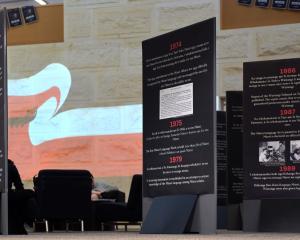
Dry July may have limited the celebrations at the Forth St head office of Otago Polytechnic.
But celebration there should certainly be, with the overdue announcement by Vocational Education Minister Penny Simmonds of the restoration of full autonomy to our local polytechnic.
The ill-fated Te Pūkenga nightmare is finally, and almost inevitably, coming to an end that few will lament.
A bright new future for our polytechnic surely lies ahead once strong local governance and clear-headed leadership is again in place.
I welcome the minister’s announcement. It is something of a personal journey for me as it is 40 years since I landed my dream job as the polytechnic’s third principal, following the pioneering work of the earlier principals, Ian Scollay and Ted Aitcheson.
On the day that I shifted into my office, the bulldozers started work on the polytechnic’s new Forth St campus. What an exciting time it was as the new buildings were opened to replace the outdated facilities in the old King Edward Technical College campus.
Mind you, there were frustrations, as all day-to-decisions were stifled by the overbearing control of the Department of Education. Funding was based on student hours, laboriously recorded in daily class registers, and every significant staffing and curriculum decision needed referral to the department or other central agencies.
Innovation and creativity was stifled. All decisions on the new buildings had to be signed off in Wellington and every piece of equipment was centrally funded.
Dramatic change came about after the 1989 Learning for Life reforms of Education Minister David Lange and his sidekick, Phil Goff.
The universities feared Armageddon as the University grants committee was abolished, with its cosy arrangement of five-early funding, and the pesky upstart polytechnics were granted degree-awarding powers.
In Dunedin, always a centre of educational excellence, co-operation and mutual respect become the order of the day.
A joint tertiary liaison committee was established under the wise stewardship of Dame Dorothy Fraser.
Robin Irvine as vice-chancellor at Otago and Lester Taylor as principal at the Dunedin Teachers College committed to a collegial way of working to the benefit of all.
The first polytechnic degree, in physiotherapy, was initially a joint venture between the polytechnic and the university, though it was not long before the polytechnic established its own degrees, initially in the health sciences.
Liberated from stultifying central control, the building programme at Forth St continued apace and the regional campuses in Oamaru and Cromwell expanded rapidly. New courses were created and student access was broadened through the creative use of technology.
The long-standing links to mana whenua at the Ōtākou marae were strengthened and the late Tasi Lemalu did wonderful work in encouraging links with Pasifika communities. International students were recruited in increasing numbers.
Like all businesses, the polytechnic subsequently went through some challenging times.
In time, the inspired leadership of Phil Ker as chief executive, and the strong work of dedicated staff, saw the polytechnic recognised as a leader in diverse areas, supported by a sound financial position and high levels of student satisfaction.
It is sad that so much good work has been compromised in recent times, and that so many good staff have been lost.
Te Pūkenga could have been a useful adjunct if its powers had been circumscribed, but there is little to be gained now from speculating about what could have been done better. What is surely important is to focus clearly on the new opportunities that lie ahead.
It is worth remembering that Otago Polytechnic is the only institution to have retained its original name throughout all of the changes of recent times. Others have chosen at various times to be known as community colleges or institutes of technology but only Otago has held fast to its founding name.
It has also, I would argue, held true to the mission of vocational education, and graduates who will contribute to the economic and social development of our region and beyond.
This is a time for our community to once again add its support to our local polytechnic as it capitalises on the opportunities created by the decisions now made. I have no doubt that, given local support, Otago Polytechnic can once again add to Dunedin’s hard-earned reputation as a centre of educational excellence and innovation.
■ Dr Ian Hall was principal of Otago Polytechnic from 1985 to 1992. He now lives in Albert Town and was recently chairman of the board at Mount Aspiring College.











